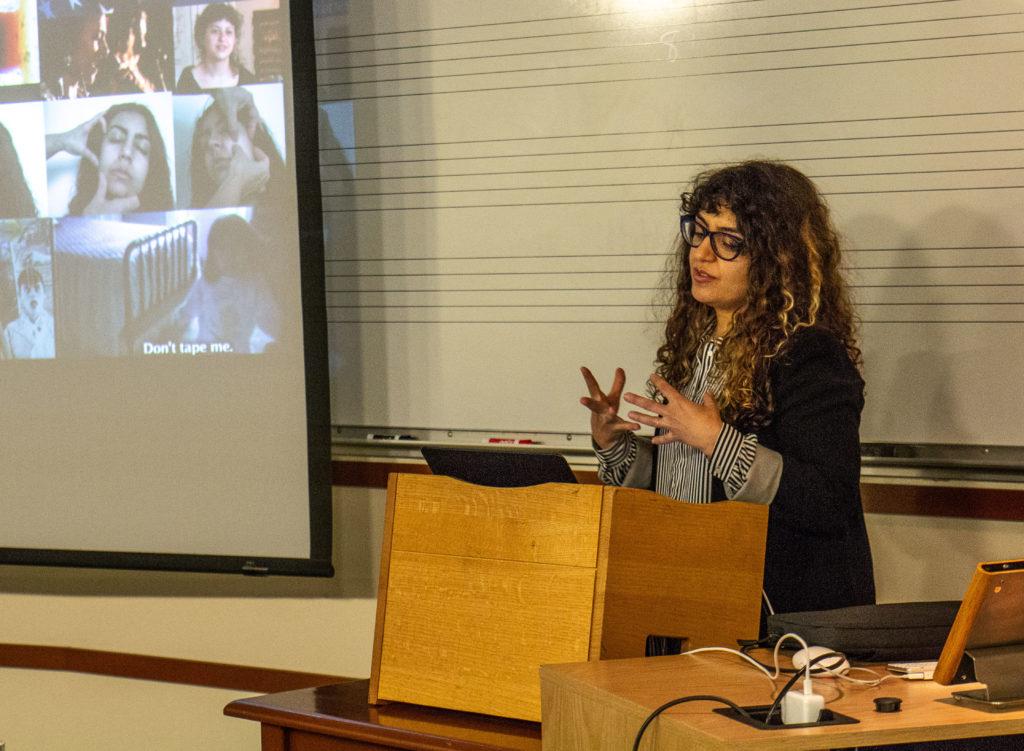
Students have long advocated for the creation of a film studies program at Grinnell. In 2017, 98 Grinnellians signed a petition calling for a formal film program at the College. As of this semester, the College seems to be taking steps in this direction: the College is currently interviewing candidates for a tenure track film and media studies position. According to Vice President of Academic Affairs and Dean of the College Mike Latham, the College is creating the position in response to popular demand.
“Film and Media Studies is an important area of interest to current and prospective students,” wrote Latham in an email to The S&B. While the College ultimately wants to offer courses on both the production side of film and media studies as well as the film theory and analysis, Latham wrote that the position Grinnell is currently trying to fill is on the production side.
Furthermore, wrote Latham, the College “anticipates building toward a major in this field, though we do not have a firm timetable for that yet.” Latham wrote that any new major must first be approved by the faculty’s curriculum committee and then by the entire College faculty. According to Latham, faculty have already reviewed preliminary proposals for the major and that a final proposal will likely be voted on within the next two years. The current position will either be in the Studio Art or the Theatre and Dance department.
Latham wrote that he disagreed with claims that a film studies program would be too vocationally oriented for a liberal arts school. Film studies, he wrote, would “sit at the intersection of visual culture, art, writing and communication. Those are core liberal arts areas of inquiry and study, not narrow pre-professional ones. I think that this program would also generate strong interest among students and be a great option for innovation in our humanities fields.”
Students interested in film at Grinnell have long had to forge their own paths in the field. Nana Okamoto ’19, who previously edited video for The S&B, has interned at film production sites during her summers to gain training and experience in film. Okamoto said that while she’s had the resources to acquire the necessary equipment to pursue film on her own, many other students don’t have those resources. A film studies program would provide those resources for students.
Joseph Knopke ’19 studied abroad in Prague to attend film school at the Film Academy of Performing Arts. According to Knopke, he was the only student on his program that was not a film major. Knopke said he had frustration at the lack of a film program at the college: the College’s creation of a film and media studies program, he said, is “long overdue.”
Knopke said he agreed with Latham’s disagreement with the idea that film studies is too vocational for a liberal arts school.
“It’s the most interdisciplinary field there is,” Knopke said. “You can bring every classical liberal arts subject into film studies and analysis.”
Furthermore, Knopke argued that film, given its prominence and easily accessible format, is consumed by the masses and therefore represents a unique vista into the state of a society and its values.
“Given all of its implications in the general public, analyzing film intelligently is an incredibly important thing.”
While the college is currently interviewing candidates who would teach classes on the mechanics and production of film, Knopke lauded the importance of learning the mechanics of film in tandem with film analysis.
For Knopke, the College needs both a technical and a theory side so that “students who are interested in film can consult professors both on the theoretical implication of the work they are making and the actual technical advice they need to achieve what they want to achieve.”



























































